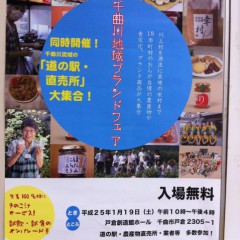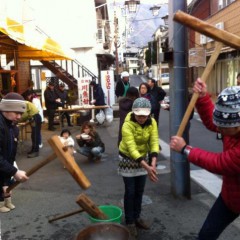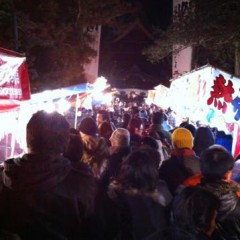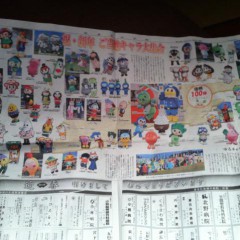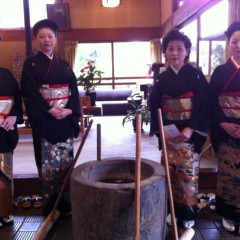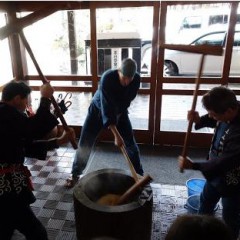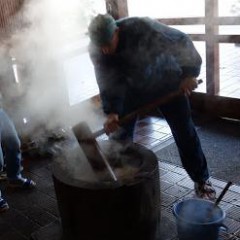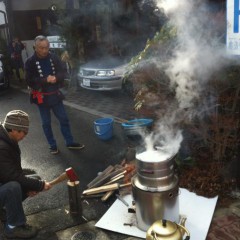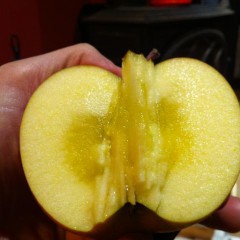
Kamiyamada Fuji Apple with 'Mitsu'
長野県はふじりんごのメッカです。日本のリンゴ生産は長野県が青森の次、第2です。青森の代表の種類は津軽でありながら、長野県はやはり、ふじ。自分の故郷、アメリカのワシントン州は米国の#1りんご生産です。その13%がふじです。
ふじりんごの特徴の一つは中心の部分が透明になり、良く「密」と言われる。密のあった方が甘くておいしいと皆が言います。しかし、ある情報でこの密が実は病気の一つです。
ええ、密は美味しさの証拠か、病気か、どちらなの?
自分なりに調べてみた。りんごの密は英語でWatercore、水(=透明)中心と呼ぶ。色んな大学の研究などではWatercoreが発生すればりんごは長く持たなくなる為に病気扱いとなる。りんごにも梨にも発生するそうです。しかし、中にはりんごにWatercoreは日本であった方が甘いと言われる声も。
上山田のふじりんご。みついりで甘くておいしい!
Nagano Prefecture is mecca for fuji apples. The prefecture is Japan's 2nd largest producer of apples, behind Aomori. But while Aomori's mainstay variety is the Tsugaru, Nagano's is the fuji. My home state, Washington, is also a big apple producer -- the largest in America actually. And at last count, 13% of the production was the same fuji variety, making it the 3rd most popular in the state.
Since coming to Kamiyamada and getting to know more about fuji apples and the local orchardists, I keep hearing about "mitsu", a condition where the center of the apple turns translucent. "Mitsu" also refers to 'honey', and fuji apples with mitsu tend to be sweeter. Or, at least that's what everyone here says. However, I've also heard that the clear center can also be considered a disease.
So which is it -- is 'mitsu' a sign of sweetness, or a disease?
A recent guest gave me a key clue. I'd always wondered what 'mitsu' is called in English, and she told me: "Watercore". So doing a search on watercore turned up a lot of research as to it being a defect found in apples and pears, resulting in a shorter shelf life. One article I found in my hometown newspaper, though, explains that in Japan, it is a desired condition due to apples with it being sweeter.
So there you have it -- come to Kamiyamada for some of the sweetest watercore fuji apples!
ワシントン州りんご連盟 Washington State Apple Commission
Watercoreについてのシアトルの新聞の記事 Watercore in the Seattle Times
